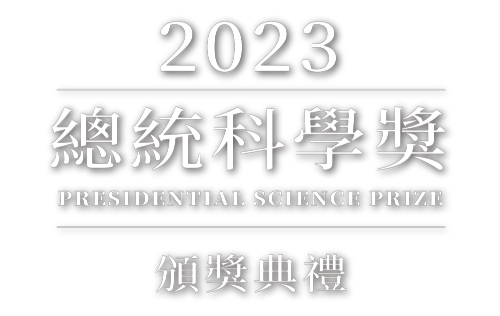PREVIOUS AWARDS
2019 AwardeesAcademician Yuan-Tsong Chen
- Article Category: PREVIOUS AWARDS
- Post Date: 2023/08/30
Life Science Category ─ Yuan-Tsong Chen
Translating Research into Clinical Practice : Discovering cures for rare diseases Preventing drug toxicity with a gene test
Joining Academia Sinica and turn Taiwan into a Genomics Medicine Research Powerhouse
Academician Yuan-Tsong (Y-T) Chen specializes in the research of Genomic Medicine and Translational Medicine. His research covers Glycogen storage diseases (including Pompe disease), adverse drug reactions (ADR), and the search of susceptibility genes for common diseases. His achievements include the development of drug for Pompe disease called Myozyme which received market approval worldwide. Chen also led the team that identified the susceptibility genes for certain adverse drug reactions, allowing ADR prevention via genetic screening before prescribing medication.
Academician Chen has successfully developed treatments for two types of genetic metabolic disorders, and such treatments have become the standard therapy. One of them is the cornstarch treatment for the low blood glucoseassociated glycogen storage diseases. The other is the new drug “Myozyme”, developed as an enzyme replacement therapy to treat Pompe disease, which is a result of enzyme deficiency that cause severe weakness in muscles and cardiorespiratory failure in due course. In infants, most die before the age of 2. The invention of this new drug has saved numerous previously hopeless patients.
Academician Chen’s team has also identified a number of susceptibility genes that predispose patients to adverse drug reactions and makes it possible to pre-empt certain severely adverse reactions to drugs. Targeting the pharmacogenetic study of two severely adverse drug reactions -- Stevens - Johnson syndrome (SJS) and toxic epidermal necrolysis (TEN) – that can cause a fatality rate of up to 40%, Chen’s team has identified genetic makers for SJS / TEN induced by Carbamazepine, a drug used to treat epilepsy, and by Allopurinol, a drug for gout, both of which can induce SJS/TEN. Regarding the dosage of the widely prescribed anticoagulant, Warfarin, Academician Chen’s team has discovered that the VKORC 1 gene polymorphism plays a critical role and the team further took part in the International Warfarin Consortium to formulate a universal algorithm based on genetic and clinical data to better predict an optimum Warfarin dosage for each individual to avoid abnormal bleeding after taking the medication.
These pharmacogenetic research findings have prompted the world-wide FDA and the major medical associations to re-label these commonly prescribed drugs, Warfarin, Carbamazepine and Allopurinol, with genetic information, and advised doctors to conduct genetic screening before prescribing the medication; thus allowing prevention of adverse drug reactions. The use of these medications is thereby more safe and more personalized, led Taiwan into the era of Personalized Medicine and Precision Medicine.
In 2001, Academician Chen accepted the invitation and returned to Taiwan as Director for Academia Sinica’s Institute of Biomedical Sciences (IBMS). Chen repositioned the IBMS’ research towards Genome and Translational Medicine and actively promoted domestic and international collaboration, brought together a strategic alliance between Academia Sinica and the international pharmaceutical Company, GlaxoSmithKline, and the US gene-chip company, Affymetrix, in order to conduct large-scale multinational, multicenter studies. Under Chen’s leadership, there has been a notable quality enhancement in academic papers published by the Institute investigators, and it has since become a norm for the IBMS research findings to be published in top-notch international scientific journals. Since 2017, Academician Chen has been proactively assisting the IBMS conducting Precision Medicine research and brought Taiwan’s already highly successful genomics medicine research into the Precision Medicine era.
Academician Chen has built infrastructures in Taiwan for large-scale genetics and genomics research and high-quality clinical investigations. He founded the Academic Contract Research Organization (Academic CRO) and established the Good Clinical Practice (GCP) guidelines to assist Taiwan’s investigators conducting Translational Medicine research. Meanwhile, Chen has founded the National Genotyping Center (NGC) to provide high-quality and high-throughput genotyping services..Taiwan has since joined many international genomic medicine and biobank research consortia. With all his efforts, Taiwan has became one of the world’s powerhouses in genomic medicine research.
Extended his immense interest in rare disease, Academician Chen, during his tenure as Chairman of Taiwan Foundation for Rare Disorders and President of Taiwan Human Genetics Society, established a rare disease research network and care mechanism for patients in Taiwan, which has became an international benchmark attracting many countries to come for a study visit. As a result when international pharmaceutical and biotech companies develop new drugs for rare diseases, they would vie to conduct clinical trials in Taiwan.
Academician Chen’s many inventions and patents have been licensed to Taiwanese companies. The Pompe disease treatment patent was licensed to Taiwan’s CSRC Group, which was later sublicensed the patent to the US Genzyme Corp, which manufactured the drug Myozyme and received market approval world-wide. The patent for adverse drug reactions (ADR) risk assessment was licensed to PharmiGene, a Taiwan-based biotechnology company, which has successfully developed a quick screening kit, now used in clinic for ADR prevention. Chen also applied his rich biotechnology experience as scientific consultants for a number of Taiwanese biotechnology companies to nurture and help to promote Taiwan’s biotechnology industry.
From 2010 to 2014, Academician Chen founded and led the “Academia Sinica Translational Medicine Research Program” to actively train young students and nourish physician-scientists in conducting quality translational research and clinical investigations. Academician Chen has also assisted the planning of the “National Biotechnology Research Park” and provided Academia Sinica with advices on the Park’s overall development.





